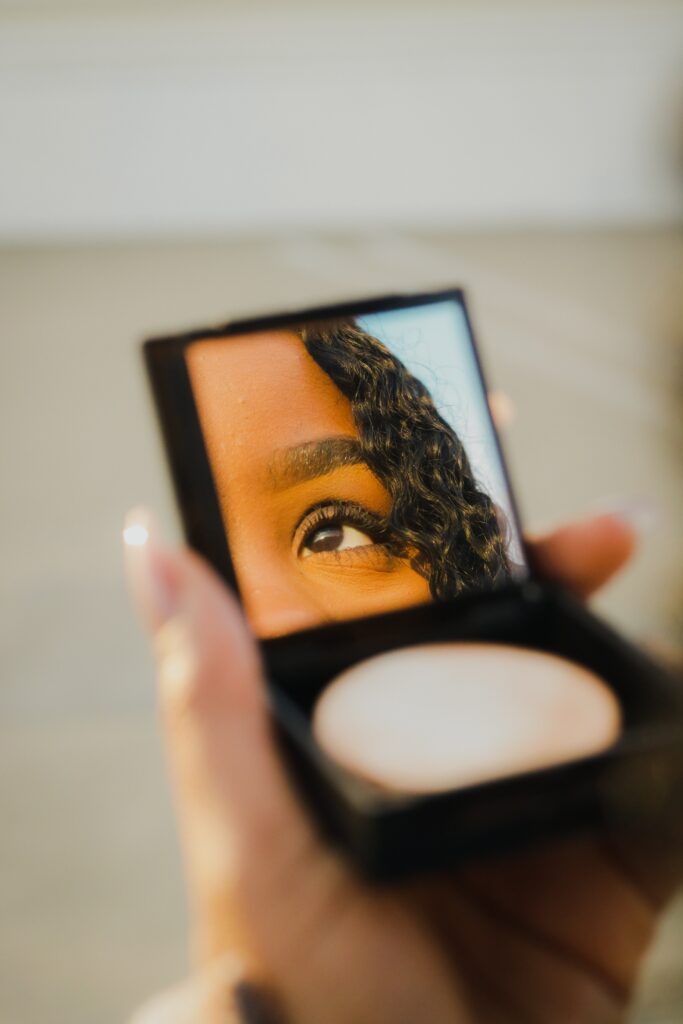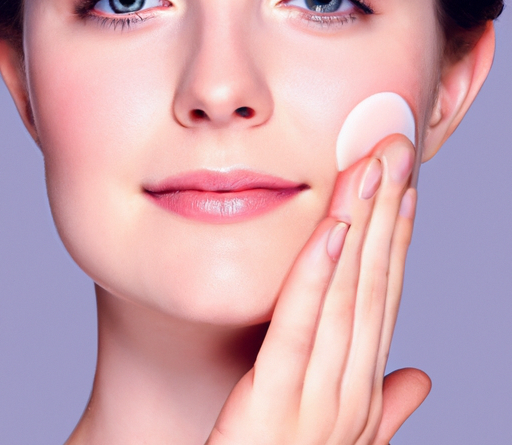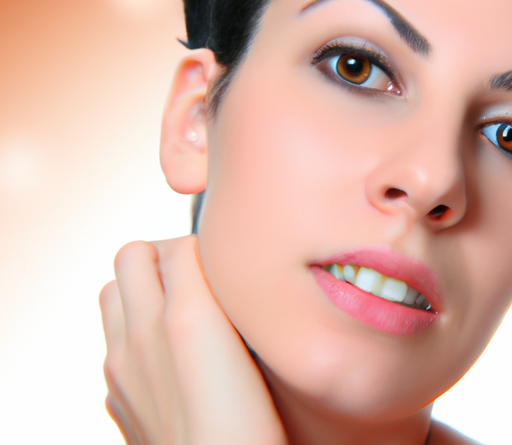In this article, we’ll discuss different effective ways for you to achieve clear, flawless skin. You’ll learn about skincare routines, natural remedies, and lifestyle habits that can help improve the overall appearance of your skin. From proper cleansing techniques to the benefits of staying hydrated, we’ll explore various tips and tricks to help you achieve the healthy, glowing skin you desire. So, let’s dive right in and discover how to get clear, flawless skin!

This image is property of images.unsplash.com.
Understanding the importance of skincare
Skincare is not just about achieving clear and flawless skin on the surface; it is also essential for maintaining the overall health of your skin. Your skin is the largest organ of your body and plays a vital role in protecting you from harmful environmental factors. Therefore, taking care of your skin should be an integral part of your daily self-care routine.
Why skincare is essential for achieving clear and flawless skin
Skincare is essential for achieving clear and flawless skin because it helps in preventing and treating various skin issues such as acne, hyperpigmentation, dryness, and fine lines. A consistent skincare routine can also improve the texture and tone of your skin, giving it a healthier and more youthful appearance. By taking proper care of your skin, you can reduce the chances of breakouts and blemishes, resulting in a smoother and more radiant complexion.
How skincare routines can benefit your skin’s overall health
A well-rounded skincare routine not only improves the appearance of your skin but also enhances its overall health. By regularly cleansing and nourishing your skin, you remove dirt, oil, and impurities that can clog pores and lead to acne. Skincare products such as moisturizers and serums help in maintaining the skin’s moisture balance, preventing dryness and protecting it from external aggressors. Additionally, certain skincare ingredients like antioxidants and SPF provide protection against free radicals and harmful UV rays, respectively, reducing the risk of skin damage and premature aging.
Identifying your skin type
Understanding your skin type is crucial for choosing the right skincare products and treatments. There are generally four skin types: normal, oily, dry, and combination. Observing your skin’s behavior throughout the day can help determine your skin type. Normal skin is balanced and free from excessive oiliness or dryness. Oily skin tends to produce an excess amount of oil, leading to a shiny complexion and frequent breakouts. Dry skin lacks moisture and often feels tight and flaky. Combination skin is characterized by having both oily and dry areas, typically with an oily T-zone (forehead, nose, and chin) and dry cheeks.
professional advice from a dermatologist can provide further insight into your skin type and any specific concerns you may have. A dermatologist can perform a thorough analysis and recommend suitable products and treatments tailored to your unique needs.

This image is property of images.unsplash.com.
Cleansing your skin effectively
Cleansing your skin properly is the foundation of any skincare routine. It helps remove dirt, oil, and makeup that accumulate on your skin throughout the day, allowing it to breathe and repair itself. Choosing the right cleanser for your skin type is essential to avoid stripping away natural oils or exacerbating any existing skin concerns.
If you have normal or dry skin, opt for a gentle, cream-based cleanser that hydrates while cleansing. Oily skin benefits from a gel or foam cleanser that helps control excess oil production. Combination skin can benefit from using a gentle cleanser that caters to both oily and dry areas of the face.
To cleanse your face effectively, start by wetting your face with lukewarm water. Apply a small amount of cleanser to your fingertips and massage it gently onto your skin using circular motions. Be sure to cover your entire face, including the hairline, jawline, and neck. Rinse thoroughly with water and pat dry with a clean towel. Avoid rubbing your face vigorously as it can cause irritation.
Incorporating double-cleansing into your skincare routine can further enhance the effectiveness of removing impurities. Double-cleansing involves using an oil-based cleanser to dissolve oil-based impurities such as sunscreen and makeup, followed by a water-based cleanser to remove water-based impurities such as sweat and dirt. This two-step process ensures a deep cleanse and leaves your skin refreshed and ready for the next steps in your skincare routine.
Exfoliating to remove dead skin cells
Exfoliation is a crucial step in achieving clear and glowing skin. It helps remove dead skin cells from the surface, revealing fresh, healthy skin underneath. Exfoliating regularly can also promote cell turnover, prevent clogged pores, and improve the absorption of other skincare products.
There are two main types of exfoliants: physical exfoliants and chemical exfoliants. Physical exfoliants contain small particles or textured ingredients that physically scrub away dead skin cells. Examples include scrubs, brushes, and exfoliating gloves. Chemical exfoliants, on the other hand, contain ingredients such as alpha-hydroxy acids (AHAs) or beta-hydroxy acids (BHAs) that dissolve the bonds between dead skin cells, allowing them to be sloughed off naturally. Chemical exfoliants are generally more gentle and suitable for all skin types.
The frequency of exfoliation depends on your skin type and the product you are using. For normal and combination skin, exfoliating two to three times a week is generally sufficient. Oily skin can benefit from more frequent exfoliation, up to four times a week. However, for sensitive or dry skin, exfoliating once a week or using a gentler exfoliant is recommended to avoid over-exfoliation and irritation.
When exfoliating, it is essential to be gentle and avoid excessive scrubbing, as it can damage the skin barrier. After exfoliating, follow up with a hydrating mask or moisturizer to replenish moisture and soothe the skin. Additionally, always wear sunscreen during the day as exfoliation increases the skin’s sensitivity to the sun.

This image is property of images.unsplash.com.
Nurturing your skin with proper hydration
Proper hydration is vital for achieving clear and hydrated skin. Moisturizers play a crucial role in maintaining the skin’s moisture balance, preventing dryness and keeping it supple and healthy. Choosing the right moisturizer for your skin type will ensure optimal hydration and nourishment.
For dry skin, opt for a moisturizer with richer and thicker consistency, containing ingredients like hyaluronic acid or ceramides, which help retain moisture. Oily or acne-prone skin can benefit from lightweight, oil-free moisturizers that provide hydration without clogging pores. Combination skin can use different moisturizers for oily and dry areas of the face to address specific concerns.
In addition to moisturizers, incorporating additional hydration methods such as facial mists and serums can provide an extra boost of moisture for your skin. Facial mists can be spritzed throughout the day to refresh and hydrate your skin, while serums containing concentrated active ingredients can target specific concerns such as brightening, firming, or soothing the skin.
Protecting your skin from harmful UV rays
Protecting your skin from harmful UV rays is crucial for maintaining clear and flawless skin. Prolonged sun exposure can cause sunburn, premature aging, and increase the risk of skin cancer. Therefore, incorporating sun protection into your skincare routine is essential.
The importance of sun protection starts with selecting the appropriate sunscreen for your skin type. Look for broad-spectrum sunscreens that protect from both UVA and UVB rays with an SPF (sun protection factor) of at least 30. Oily or acne-prone skin can opt for oil-free or gel-based sunscreens, while dry skin may benefit from moisturizing or tinted formulas. Apply sunscreen generously to all exposed areas of your skin and reapply every two hours, especially when spending extended periods outdoors or engaging in water-related activities.
Aside from using sunscreen, it is also important to adopt sun protection habits. Seek shade during peak sun hours, wear protective clothing like hats and sunglasses, and avoid tanning beds. Additionally, proper application techniques, such as patting or pressing sunscreen onto the skin instead of rubbing, can ensure even coverage and maximum effectiveness.

Targeting specific skin concerns
In addition to a regular skincare routine, targeting specific skin concerns can help address individual needs and achieve clear and flawless skin.
If you struggle with acne and breakouts, incorporating products containing ingredients like salicylic acid or benzoyl peroxide can help control excess oil production and treat existing acne. It is important to cleanse your face twice a day, avoid touching your face, and use non-comedogenic (non-pore-clogging) products.
Hyperpigmentation and dark spots can be treated with ingredients like vitamin C or niacinamide, which help brighten the skin and fade discoloration over time. Using a sunscreen daily is also crucial to prevent further darkening of hyperpigmentation.
Fine lines and wrinkles can be minimized by using anti-aging products that contain retinol or peptides. These ingredients stimulate collagen production and promote skin elasticity, reducing the appearance of fine lines.
Dryness and flakiness can be alleviated by using rich moisturizers and incorporating hydrating ingredients like hyaluronic acid or ceramides into your skincare routine. Additionally, avoiding hot showers and harsh skincare products can prevent further drying of the skin.
Adopting a healthy lifestyle for glowing skin
Achieving clear and flawless skin goes beyond just skincare products. Adopting a healthy lifestyle can further enhance the appearance and health of your skin.
Nutrition plays a significant role in skin health. Consuming a balanced diet rich in fruits, vegetables, whole grains, and lean proteins provides essential vitamins and minerals that promote skin radiance. Antioxidant-rich foods like berries, leafy greens, and nuts can help fight free radicals and protect against skin damage.
Regular exercise improves blood circulation, which in turn nourishes the skin cells and promotes a healthy glow. Incorporating activities like jogging, yoga, or swimming into your routine can help enhance skin health.
Stress management is essential for clearer skin. Chronic stress can trigger hormonal imbalances that lead to breakouts and other skin issues. Engaging in stress-relieving activities like meditation, deep breathing exercises, or hobbies can help maintain a healthy mind and clearer complexion.

Considering professional skincare treatments
While at-home skincare routines can significantly improve the appearance of your skin, exploring professional skincare treatments can provide additional benefits.
Facials and professional skin treatments performed by trained estheticians can deeply cleanse, exfoliate, and hydrate the skin. These treatments often use high-quality products and specialized techniques to address specific concerns and give your skin a more rejuvenated appearance. Regular facials can also improve the texture and tone of your skin over time.
Seeking advice from dermatologists can provide personalized skincare recommendations and treatments. Dermatologists can diagnose and treat various skin conditions, prescribe medications or topical treatments, and recommend advanced procedures like laser therapy, chemical peels, or microneedling, depending on your skin concerns.
It is important to note that some professional skincare treatments may have limitations and risks. Understanding the potential side effects and expected outcomes of a treatment is crucial before undergoing any procedure. Additionally, it is always recommended to consult with a qualified professional and follow their guidance for the best possible results.
Conclusion
Achieving clear and flawless skin requires consistent effort, patience, and a holistic approach to skincare. By understanding the importance of skincare, identifying your skin type, and following a proper cleansing and exfoliating routine, you can lay the foundation for healthy and radiant skin. Nurturing your skin with hydration, protecting it from the sun, and targeting specific concerns will further enhance its appearance. Combining a healthy lifestyle, professional skincare treatments, and prioritizing self-care will ultimately lead to the clear and flawless skin you desire. Enjoy the journey and take pride in the self-care rituals that contribute to your skin’s beauty. So start incorporating these practices into your skincare routine today and watch your skin transform into clear and flawless perfection.






